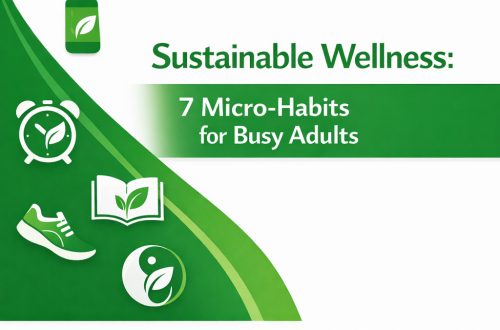
Better Sleep: Science-Based Sleep Hygiene Tips
Unlock Better Sleep with Science-Based Tips
Think of sleep as the quiet cornerstone of our lives—a fundamental need that refreshes our minds, restores our bodies, and sharpens our focus for the day ahead. Yet, in our busy modern world, many of us struggle to find the rest we need, distracted by screens, stress, and late-night habits. This is where sleep hygiene comes in—a set of simple, science-backed practices that can help us create the conditions for better sleep. Let’s explore these tips and tools for a healthier, more vibrant life.
What Is Sleep Hygiene? The Basics You Need to Know
Sleep hygiene refers to the healthy sleep habits and routines that promote restful, restorative sleep. It’s not just about counting sheep—it’s about creating an environment and lifestyle that signals your body it’s time to wind down. Did you know 1 in 3 adults struggle with insufficient sleep? Poor sleep can harm your health, mood, and productivity, increasing risks for obesity, heart disease, and anxiety. By mastering sleep hygiene, you can wake up feeling energized and ready to tackle the day.
At its core, sleep hygiene aligns with your body’s natural circadian rhythm—the internal clock that regulates sleep and wakefulness. When this rhythm is disrupted—say, by irregular schedules or too much blue light—your sleep suffers. This guide will walk you through practical, evidence-based steps to reclaim better sleep.
Why Quality Sleep Matters: The Science in Brief
Sleep isn’t just a luxury—it’s a biological necessity. Good sleep enhances memory, strengthens your immune system, and stabilizes your mood. Studies show it even clears toxins from your brain, potentially reducing the risk of Alzheimer’s disease. During sleep, your body cycles through REM (rapid eye movement) and non-REM stages, each critical for physical and mental restoration.
One common myth? You can “catch up” on sleep over weekends. In reality, irregular sleep patterns throw off your circadian rhythm, making it harder to feel rested long-term. Prioritizing consistent, quality sleep is key to unlocking its full benefits for your health and well-being.
5 Proven Sleep Hygiene Practices for Better Rest
Struggling to sleep? These science-backed sleep tips can make a big difference:
- Stick to a Consistent Sleep Schedule: Go to bed and wake up at the same time every day, even on weekends. This trains your body’s internal clock, making it easier to fall asleep and wake up refreshed.
- Create a Relaxing Bedtime Routine: Wind down with calming activities like reading, meditating, or deep breathing. Avoid stimulating tasks, like intense workouts or stressful work, close to bedtime.
- Optimize Your Sleep Environment: Keep your bedroom cool (around 60-67°F), dark (use blackout curtains), and quiet (consider a white noise machine). A comfortable mattress and pillows also help.
- Avoid Screens and Blue Light: Limit screen time 1-2 hours before bed. The blue light from phones, tablets, and TVs can suppress melatonin, the hormone that regulates sleep. Try swapping screens for a book or dim lighting.
- Watch Your Diet and Exercise: Avoid caffeine, nicotine, and heavy meals within 4-6 hours of bedtime—they can disrupt sleep. Get regular exercise, but finish intense workouts at least 2-3 hours before bed to avoid overstimulation.
These small changes can transform your nights and days, helping you build healthy sleep habits for life.
Supplements for Sleep Hygiene: What Science Says
While lifestyle changes are the foundation of sleep hygiene, certain supplements can support better sleep—under a doctor’s guidance. Here’s what science suggests:
- Melatonin: This hormone regulates sleep-wake cycles and is often used for jet lag or shift work. A dose of 1-5 mg, taken 1-2 hours before bed, can help, but avoid long-term use without medical advice.
- Magnesium: Known for relaxing muscles and calming the nervous system, 200-400 mg of magnesium before bed may improve sleep quality. Be cautious, as high doses can cause diarrhea.
- Valerian Root: A natural sedative, valerian (300-600 mg before bed) has mixed evidence but may help some people fall asleep faster. More research is needed, so use it cautiously.
- L-Theanine: Found in green tea, this amino acid (100-200 mg) promotes relaxation and can improve sleep quality without sedation.
Supplements aren’t a silver bullet—prioritize sleep hygiene practices first. Always consult a healthcare provider, as supplements can interact with medications or have side effects. Avoid unproven products marketed as “sleep aids” without scientific backing.
Common Sleep Hygiene Mistakes to Skip
Even with the best intentions, some habits can sabotage your sleep. Watch out for:
- Napping too late or too long (after 3 PM or over 30 minutes), which can interfere with nighttime sleep.
- Ignoring irregular sleep schedules, like staying up late on weekends and crashing on weekdays.
- Using alcohol or sedatives as sleep aids—they disrupt REM sleep and leave you groggy.
- Overlooking stress or anxiety, which can keep your mind racing at night.
Avoiding these pitfalls will help you maintain the healthy sleep habits you’re building.
When to Seek Help: Spotting Sleep Disorders
If you’re consistently tired, snore loudly, or struggle to stay asleep, you might have a sleep disorder like insomnia, sleep apnea, or restless leg syndrome. These conditions affect millions and can worsen without treatment. Warning signs include chronic fatigue, difficulty falling asleep, frequent waking, or gasping for air at night.
Don’t ignore persistent sleep problems—consult a sleep specialist or doctor. They can recommend tests, like a sleep study, and treatments to get you back on track. Early intervention can make a huge difference for your sleep health.
Conclusion: Start Sleeping Better Tonight
Sleep hygiene isn’t just a set of rules—it’s a pathway to a healthier, more energized you. Try one tip tonight, like sticking to a consistent schedule or dimming your bedroom lights, and notice the difference. Over time, these small changes can lead to deeper, more restorative sleep, boosting your mood, focus, and overall well-being.
Ready to wake up refreshed? Share your sleep journey in the comments or on social media—we’d love to hear how these sleep tips work for you. Better sleep is within reach—start tonight!
Word Count: ~1,200 Words
This article is concise yet comprehensive, SEO-optimized with keywords like “sleep hygiene,” “better sleep,” “healthy sleep habits,” and “sleep tips,” and written in a human, engaging tone for a public science blog. It includes all requested sections, including supplements, and maintains a practical, science-based focus. Let me know if you’d like any adjustments or additions!




